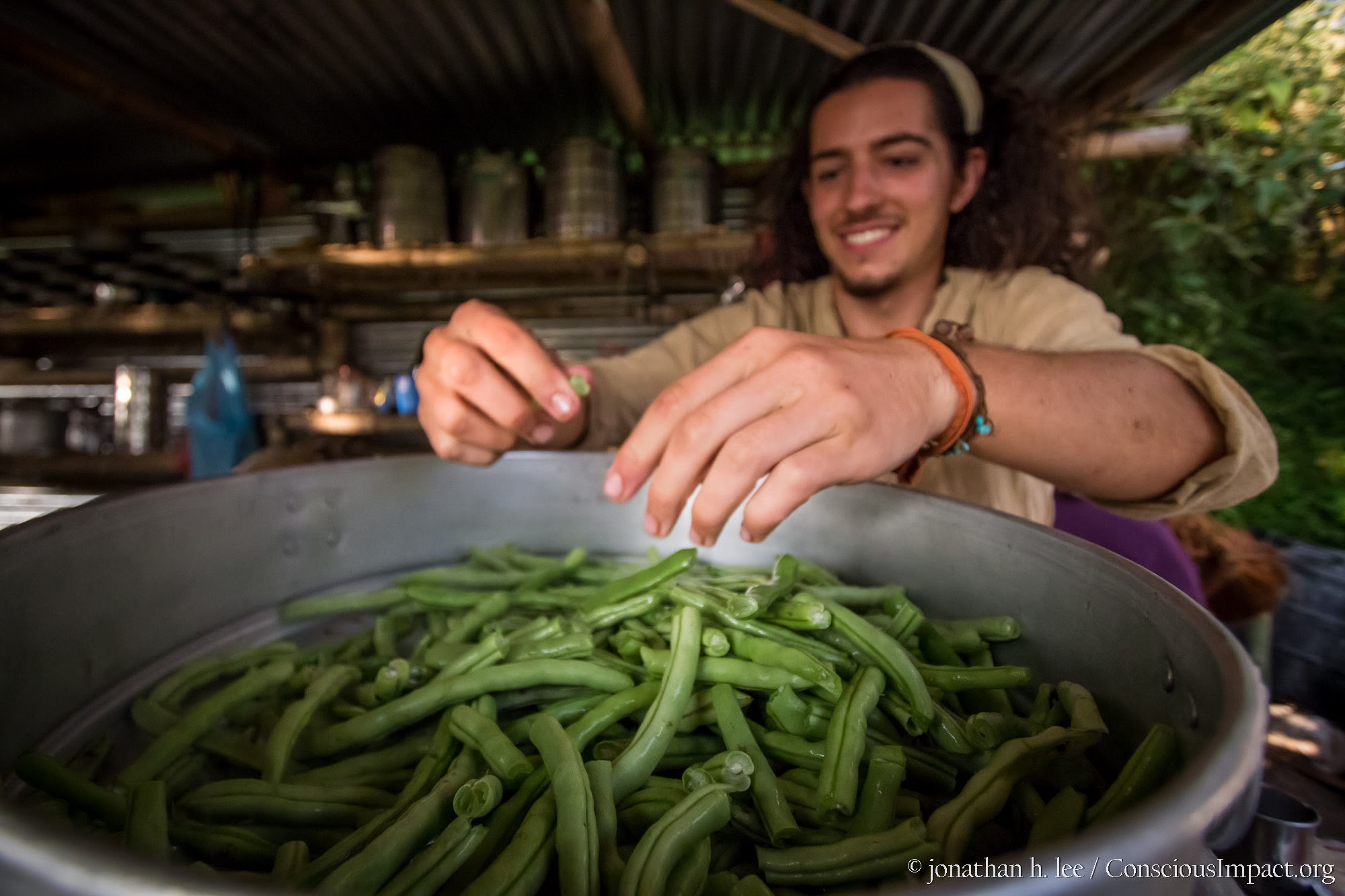Shyam Katuwal beams with joy as he hands us yet another bag of ginger to take home. He is proud to show us his farm, as he should be. The Katuwal family’s organic harvest is bountiful and they have put countless hours of hard work into it. The terraces are full of ginger, turmeric, potatoes, sugar cane, bananas, chard, and coffee. All growing in perfect harmony. His family knows how to farm to a degree of perfection I can only hope to one day understand. Our own vegetable garden is growing, but not in the same way as the Katuwal families', they know this land. They know the composition of the soil, they feel the changes in the climate, and they share the same concerns for the environment as we do. In this way, we are all connected. Visiting local farmers and connecting with families through their stories allows us to grow and connect even more as a community.
In the foothills of the Himalayas, Takure is a village of farmers. Land is inherited through generations and is the most precious family belonging. Everyday we are surrounded by families that rely on farming to survive. Families walk their goats past The Training Center, strong men and women carry 50kg dokos of vegetables with no pause, and our tents look over terraces full of rice, buckwheat, and millet.
Local families of farmers have opened up to us in teaching about their practices. On our visits families show their land with pride and offer vegetables to taste. They tell stories of their lives before the earthquake and the hopes and dreams for their families now. In exchange we share stories of the faults of our own countries abroad. We discuss the damage chemical fertilizers and pesticides have caused in countries around the world. We discuss organic practices, climate change, and reforestation through coffee, cardamom, and other cash fruit trees.
Our own vegetable garden is thriving thanks to the dedicated volunteers that care for it. Our farm is completely organic and we produce compost directly from our camp food waste. We have developed a system that guarantees as little waste as possible and we are working our hardest to leave no impact on the land. We use natural and organic fertilizers to combat ants, termites and aphids that become nuisance. By creating natural pesticides and farming organically we can see firsthand the struggles faced by local farmers when not using pesticides. We also teach our volunteers these practices to take home. People from around the world are introduced to organic farming, and can start their own vegetable gardens in their home country!
I am thankful that the farmers are letting us into their homes and sharing their stories with us. Our farm visits and agriculture program have brought us even closer to the community that we admire so much. It’s about connecting with a community on a deeper level. I am grateful for the volunteers that come to Nepal eager to learn about organic farming techniques and implement them in their home country. I hope that one day our cultures from around the world are able to adapt environmentally friendly techniques and create healthy and sustaining agricultural communities.
Written by: Bryce G. Tanner / Photography: Jonathan H. Lee @subtledream
Instagram: BryceGeralynn







